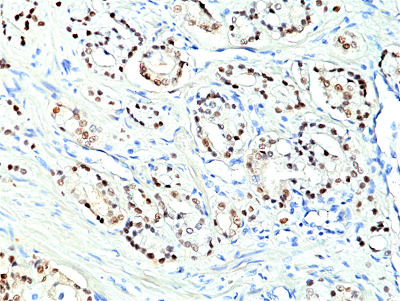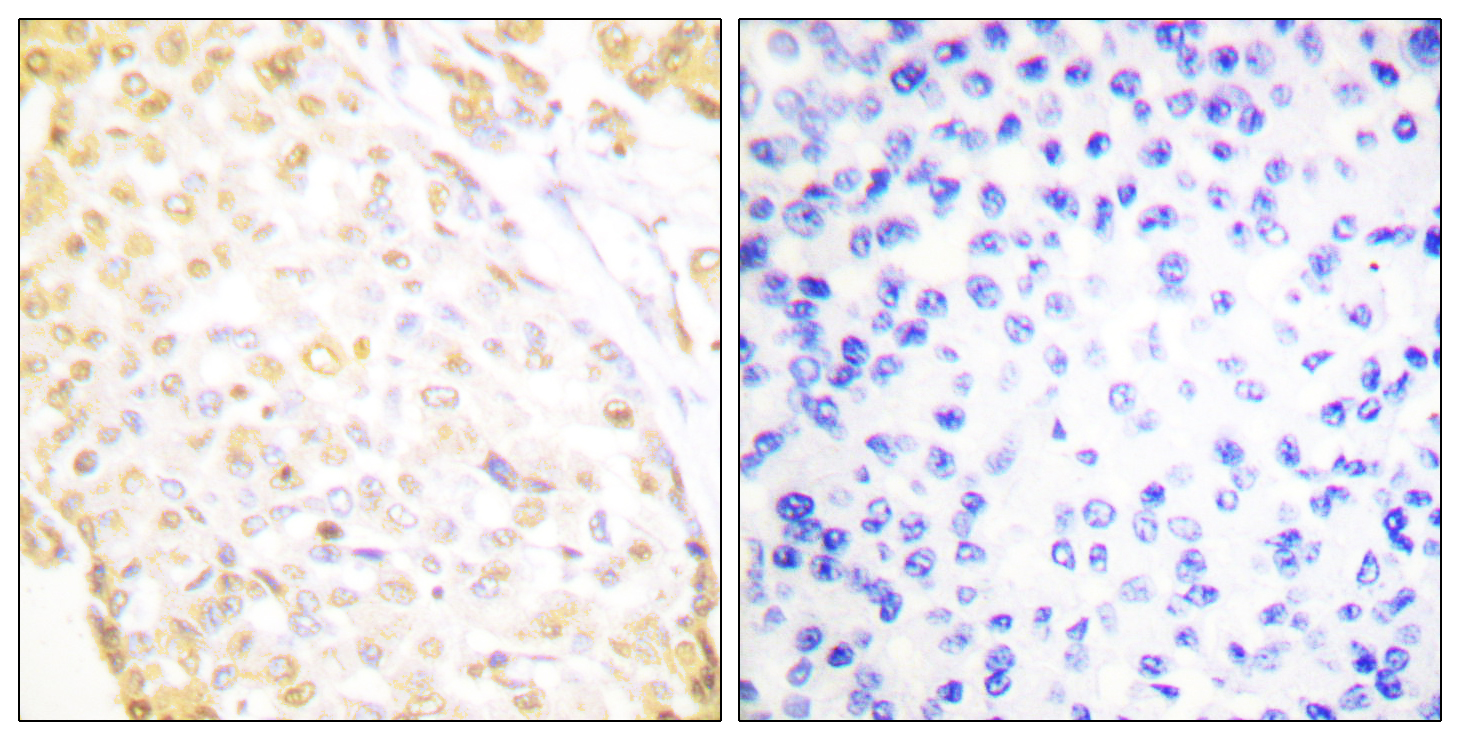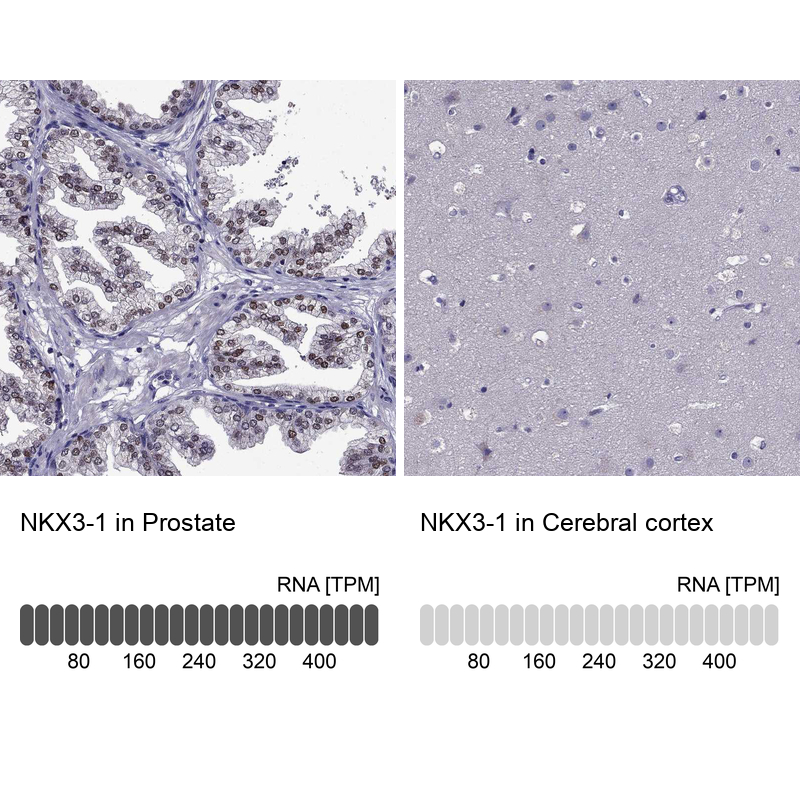
anti-Nkx3.1 Rabbit Monoclonal (RM430)
REV-31-1318-00
ApplicationsImmunoHistoChemistry
Product group Antibodies
ReactivityHuman
TargetNKX3-1
Overview
- SupplierRevMAb Biosciences
- Product Nameanti-Nkx3.1 Rabbit Monoclonal (RM430)
- Delivery Days Customer2
- ApplicationsImmunoHistoChemistry
- CertificationResearch Use Only
- ClonalityMonoclonal
- Clone IDRM430
- Gene ID4824
- Target nameNKX3-1
- Target descriptionNK3 homeobox 1
- Target synonymsBAPX2, NKX3, NKX3.1, NKX3A, homeobox protein Nkx-3.1, NK homeobox, family 3, A, NK3 transcription factor homolog A, NK3 transcription factor related, locus 1, homeobox protein NK-3 homolog A
- HostRabbit
- IsotypeIgG
- Protein IDQ99801
- Protein NameHomeobox protein Nkx-3.1
- Scientific DescriptionRecombinant Antibody. This antibody RM430 reacts to human Nkx3.1. Application: IHC. Source: Rabbit. Liquid. 50% Glycerol/PBS with 1% BSA and 0.09% sodium azide. The homeodomain-containing transcription factor NKX3-1 is a putative prostate tumor suppressor that is expressed in a largely prostate-specific and androgen-regulated manner. Loss of NKX3-1 protein expression is a common finding in human prostate carcinomas and prostatic intraepithelial neoplasia. Plays an important role in normal prostate development, regulating proliferation of glandular epithelium and in the formation of ducts in prostate. Acts as a tumor suppressor controlling prostate carcinogenesis, as shown by the ability to inhibit proliferation and invasion activities of PC-3 prostate cancer cells. - The homeodomain-containing transcription factor NKX3-1 is a putative prostate tumor suppressor that is expressed in a largely prostate-specific and androgen-regulated manner. Loss of NKX3-1 protein expression is a common finding in human prostate carcinomas and prostatic intraepithelial neoplasia. Plays an important role in normal prostate development, regulating proliferation of glandular epithelium and in the formation of ducts in prostate. Acts as a tumor suppressor controlling prostate carcinogenesis, as shown by the ability to inhibit proliferation and invasion activities of PC-3 prostate cancer cells.
- ReactivityHuman
- Storage Instruction-20°C,2°C to 8°C
- UNSPSC41116161






